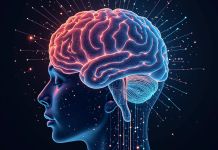With the emergence of artificial intelligence into the mainstream, it is a fair assumption that people in certain industries must be fearing for thier jobs.
“AI will affect almost 40% of jobs around the world, replacing some and complementing others.” — Kristalina Georgieva, Managing Director of the International Monetary Fund imf.org
AI is rapidly changing the job market, and some careers are more at risk than others due to automation and machine learning advancements. Here are some of the most vulnerable jobs:
1. Administrative & Clerical Jobs
- Data entry clerks
- Receptionists
- Bank tellers
- Payroll clerks
- Customer service representatives (chatbots replacing human support)
2. Manufacturing & Warehouse Work
- Assembly line workers
- Machine operators
- Quality control inspectors
3. Retail & Sales Jobs
- Cashiers (self-checkout & AI-powered kiosks)
- Telemarketers
- Retail sales associates
4. Transportation & Delivery
- Truck drivers (self-driving technology)
- Taxi and rideshare drivers (autonomous vehicles)
- Delivery drivers (drones & robotics)
5. Media & Content Creation
- Journalists (AI-generated news articles)
- Copywriters (AI-generated marketing content)
- Graphic designers (AI-powered design tools)
6. Finance & Accounting
- Accountants & auditors (AI-powered financial software)
- Stock traders (algorithmic trading)
- Insurance underwriters
7. Healthcare (Certain Roles)
- Radiologists (AI image analysis)
- Medical transcriptionists
- Pharmacists (automated prescription dispensers)
8. Legal Industry
- Paralegals (AI-powered legal research)
- Contract reviewers (AI contract analysis tools)
9. Education
- Tutors (AI-based personalized learning platforms)
- Online course instructors
10. Fast Food & Hospitality
- Fast food workers (robotic kitchen assistants)
- Hotel front desk staff (AI-powered check-ins)
Careers Less at Risk
Jobs that require creativity, human intuition, complex problem-solving, and emotional intelligence are safer for now. These include:
- Healthcare professionals (surgeons, nurses)
- Skilled trades (electricians, plumbers)
- Teachers and educators
- Mental health professionals
- AI engineers & developers
Future-Proof Careers & Strategies to Adapt to AI Changes
While AI is automating many jobs, new opportunities are emerging in fields that require human creativity, emotional intelligence, problem-solving, and technical expertise. Here’s how you can future-proof your career:
🛠 Careers That Are Safe from AI (For Now)
1. STEM (Science, Technology, Engineering, and Math) Jobs
- AI/ML Engineers & Data Scientists
- Cybersecurity Experts
- Software Developers
- Robotics Engineers
- Cloud Computing Specialists
💡 Why? AI needs human experts to develop, manage, and improve it.
2. Skilled Trades & Hands-On Work
- Electricians & Plumbers
- Carpenters & Construction Workers
- Mechanics & HVAC Technicians
💡 Why? AI struggles with complex, physical, real-world problem-solving.
3. Healthcare & Mental Health
- Doctors & Surgeons
- Nurses & Caregivers
- Psychologists & Therapists
💡 Why? These roles require empathy, complex decision-making, and physical presence.
4. Creative & Human-Centric Careers
- Artists, Writers & Filmmakers
- UX/UI Designers
- Marketing & Branding Experts
- Teachers & Educators
💡 Why? AI can generate content but lacks deep creativity, originality, and human connection.
5. Leadership & Entrepreneurship
- Business Owners
- Management Consultants
- Corporate Leaders
- HR Professionals
💡 Why? AI can’t replace strategic thinking, human relationships, or leadership vision.
How to Adapt & Stay Ahead of AI
✅ Learn AI & Automation Skills
- Take courses in AI, machine learning, coding, or data analytics.
- Platforms like Coursera, Udemy, and LinkedIn Learning offer great AI-related courses.
✅ Focus on Human Skills
- Improve emotional intelligence, communication, and leadership skills.
- Develop problem-solving and creativity, which AI struggles to replicate.
✅ Be Adaptable & Keep Learning
- Stay updated on industry trends.
- Get certifications and upskill regularly.
✅ Embrace AI Instead of Competing with It
- Use AI tools to enhance your work instead of fearing replacement.
- Leverage AI for productivity, automation, and data-driven decisions.
✅ Consider Entrepreneurship & Freelancing
- Build a personal brand.
- Explore remote work, side gigs, or starting your own business.
AI Courses & Career Path Recommendations Based on Your Skills
To give you the best recommendations, I need to know a bit about your background. Could you tell me:
1️⃣ Your current job or industry
2️⃣ Your main skills (technical, creative, leadership, etc.)
3️⃣ Your interests (tech, business, design, healthcare, etc.)
4️⃣ Do you prefer a career shift or just future-proofing your current role?
Interesting Facts About AI:
- AI is expected to impact nearly 40% of jobs worldwide, with advanced economies seeing higher exposure. businessinsider.com
- Generative AI has the potential to disrupt over 30% of tasks in various occupations, especially in middle- to higher-paid professions. brookings.edu
- While AI can perform many tasks, its suitability depends on factors like task complexity, frequency, and the consequences of failure. ft.com
Expert Quotes:
- “AI will affect almost 40 percent of jobs around the world, replacing some and complementing others.” — Kristalina Georgieva, Managing Director of the International Monetary Fund imf.org
- “Existing generative AI technology already has the potential to significantly disrupt a wide range of jobs.” — Brookings Institution Report brookings.edu
- “For successful AI integration, continuous learning, clear communication, and robust training are essential.” — The HR Director thehrdirector.com
External Resource Links:
- Pew Research Center: Which U.S. Workers Are More Exposed to AI on Their Jobs?
- Brookings Institution: Generative AI, the American Worker, and the Future of Work
- SHRM: 5 Tips to Help Workers Upskill and Adapt to Artificial Intelligence
“Existing generative AI technology already has the potential to significantly disrupt a wide range of jobs.” — Brookings Institution Report
“For successful AI integration, continuous learning, clear communication, and robust training are essential.” — The HR Director




